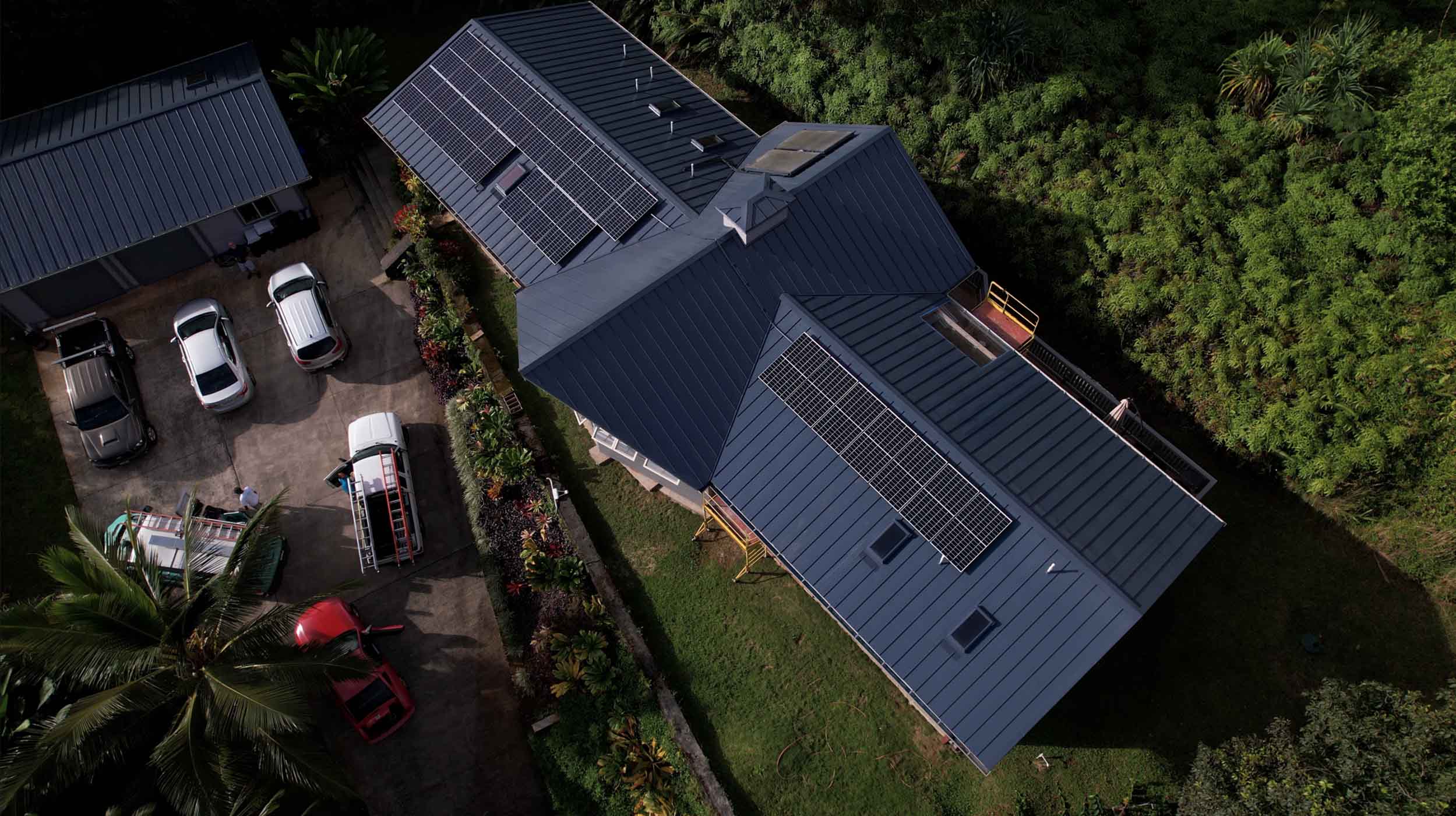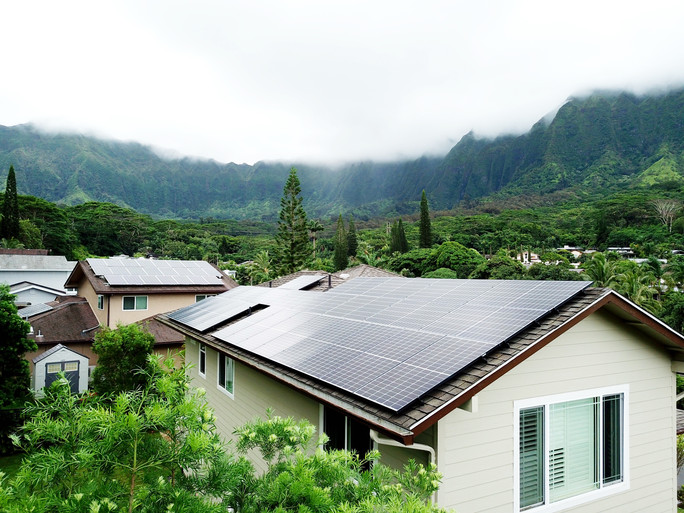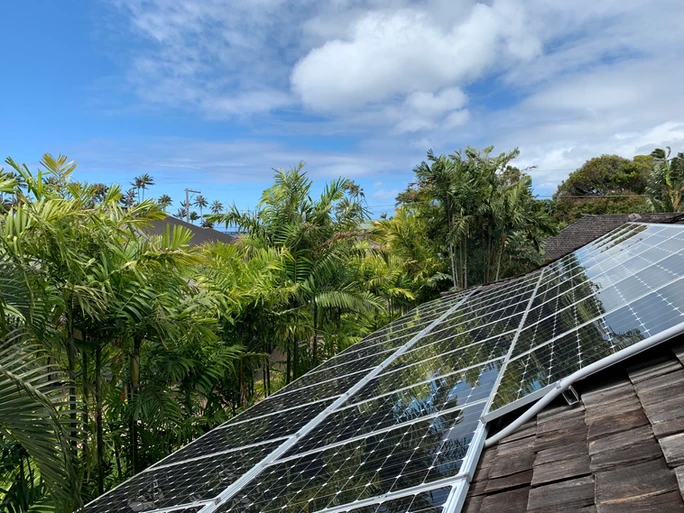
Solar Plans for Everyone
With incentives and financing options, cost is no longer a barrier
Independence from Utilities
Switching to solar means you are independent from rising utility costs. Rather than paying some of the highest utility costs in the nation, you will be generating your own electricity directly from the sun. Let’s explore the various pricing options as well as the tax incentives available to Hawai’i homeowners.
This page is for informational purposes only and does not constitute legal, financial, or tax advice.
Compare Mālama Solar Plans
Benefit
System Ownership
Upfront Payment
Full Payment Due
Monthly Payment
Energy Independence
Warranty
Purchase and Finance
Homeowner
$0 Down
At End of Loan Term
To Loan Provider
✓
✓
Own your system outright
Homeowner
Little Down
After Installation
X
✓
✓
Save  , Save $$
, Save $$
 , Save $$
, Save $$We take pride in being “Hawai‘i’s Solar Company.” Get ready to cut energy costs with our hassle-free solar experience on both O’ahu.
Start Saving Now
Tax Credits Explained
We want to help you understand what options are available to you. By switching to solar, you are eligible for both a federal and a state tax credit. Call or text us today and we can set up a free evaluation of your home and your energy needs.
These compelling incentives help reduce the total cost of a brand new PV system dramatically.
Hawai'i State Tax Credits
Hawaii offers tax credits of up to 35% of the costs of installing solar. Unused credits from one year may be rolled into the future year until the full benefit has been realized.
In order to qualify, you must:
- Own your home
- Own your system (excludes leases)
- Have a large enough tax liability to benefit from the credits


Federal Tax Credits
The federal government offers tax credits of up to 30% of the costs of installing solar. This can be used in addition to the Hawaii state tax credits.
Just as with state credits, there are limitations based on ownership and income.
Mālama Solar will provide the documentation that you need to apply for these tax credits, but we cannot apply for them on your behalf.
Inflation Reduction Act of 2022
What does the inflation reduction act of 2022 mean for Hawaii? First, federal tax credits of 30% were extended into 2034. This is on top of existing state tax credits of 35%.
Additionally, incentives were introduced for switching to an electric vehicle as well as swapping gas for electric appliances.
Frequently Asked Questions
Determining if your home is good or ready for solar is the first step to getting solar installed.
For starters it is required that you own the home you are looking to install solar on. As a general rule, a home with a well maintained roof that does not overlap with other roofs is a good fit (Townhouses are a case-by-case basis). Other technicalities include the angle and style of the roof, as well as external factors such as trees and neighboring houses. For more information, contact one of our Solar Energy Consultants who can help you determine if you’re ready to go solar.
Each household is unique in its needs, so the amount of panels you need can vary. Your average monthly energy use as well as the unique angles of your roof need to be taken into account. From there, it’s just a matter of matching up your energy needs with the amount of panels required to output at least that much.
As always, we suggest contacting one of our Solar Energy Consultants who can run the numbers and find out what size system is best for you.
There are distinct advantages to either leasing or buying your system.
When you buy your system outright, you owe no further money on it and so long as your system design and energy use have been calculated properly, you will eliminate most of if not your entire energy bill. This does require a significant cash investment however, which might make the prospect of a lease more appealing.
With a lease on your system, you pay the lender a set fee each month which is typically far lower than your previous energy bill. If your system has been sized appropriately and your energy use is in line with that, you’ll save every month.
It’s as simple as it sounds. Purchase your system through Mālama Solar and you own the system. You’ll qualify for both state and federal tax rebates, which carve a significant portion of the cost off of the investment.
Under normal conditions, solar panels should last around 25-30 years at optimal production. They won’t just stop producing, but their performance will be impacted after this general lifespan. With proper care and maintenance your home will be set for electricity for nearly 30 years!
Typically, yes! The addition of a solar system to your home offers great value and much like a nicely finished bathroom or kitchen is something modern home buyers are looking for. So even if you purchase your system and move shortly after, you can potentially recoup the cost due to the added value to your home.
There are several steps to a safe and successful solar installation. Once you are approved and a site survey is complete, we will design your system using your specific home design and energy needs. This design will require a permit that will take several weeks for the city to process.
After that, we’ll send out one of our local Hawai’i crews to install your solar system! Typical installs take between 1-3 days to complete depending on complexity and weather conditions.
Lastly, Final inspections and permissions to operate approvals will be needed (we’ll handle that!) After that, you’re ready to start producing your own electricity!
Hawai’i does offer substantial incentives for adding a solar system to your home. As of this writing, the state offers a 35% tax credit on the cost of your system. Even better news: This stacks with the recently extended federal solar tax credit.
At Mālama Solar we stand by our equipment and installation process 100%. The equipment we install is backed by a 25 Year Warranty through the manufacturers, and we offer a 10 Year Warranty on the installation service. If you ever run into an issue with your system, we’re here and ready to make it right.
While a battery isn’t required for a home solar system, we highly recommend it. Not only does a battery store energy for use during the evenings (usually when most people are using their electricity), it’s a game changer for power outages and emergency situations.
Our reviews aren’t good. They’re awesome.
Don’t take our word for it, Check them out yourself!
